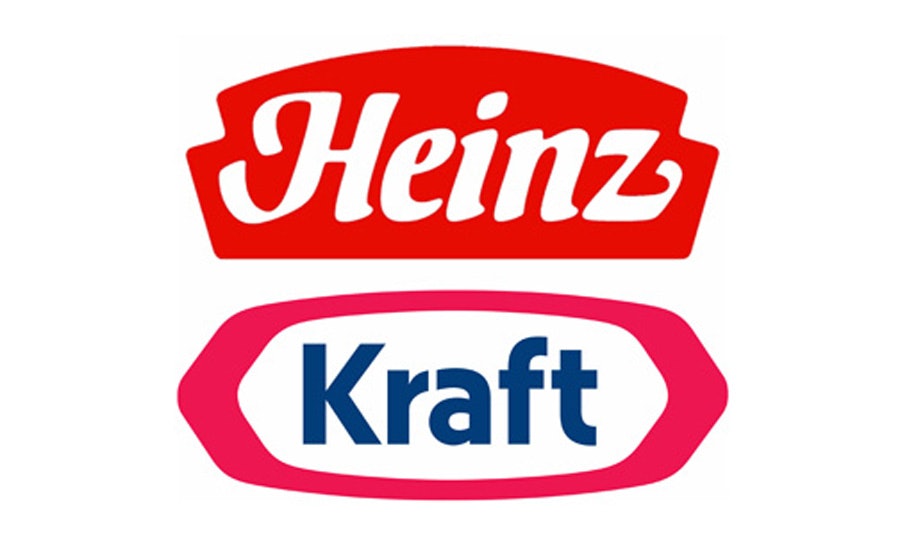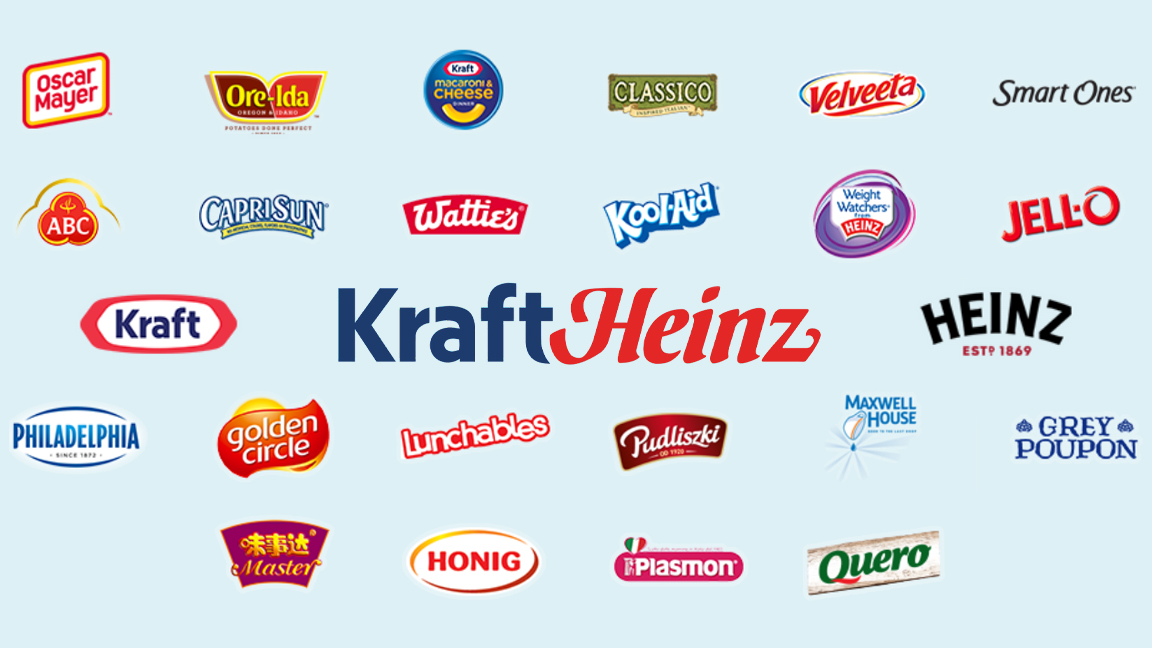Kraft Heinz Company (NASDAQ: KHC) Fourth-Quarter Earnings Overview

- Earnings Per Share (EPS) of $0.84, surpassing expectations due to tax benefits and reduced share count.
- Revenue of $6.58 billion missed forecasts, reflecting challenges in organic sales amid inflation.
- Strategic initiatives focusing on product innovation and emerging markets, despite a 2% decline in premarket shares.
Kraft Heinz Company (NASDAQ: KHC) is a major player in the global food and beverage industry, known for its iconic brands like Kraft, Heinz, Philadelphia, and Oscar Mayer. The company focuses on leveraging its brand equity to adapt to changing consumer demands. Despite its strong brand presence, Kraft Heinz faces competition from other food giants like Nestlé and Unilever.
On February 12, 2025, Kraft Heinz reported its fourth-quarter earnings, revealing a mixed performance. The company achieved an EPS of $0.84, surpassing the expected $0.78. This positive result was mainly due to unexpected tax benefits and a reduced number of outstanding shares. However, the company's revenue of $6.58 billion fell short of the $6.66 billion forecast, highlighting challenges in organic sales.
Kraft Heinz's revenue shortfall is attributed to declining demand for its higher-priced products, such as Lunchables and packaged meats. This decline is largely due to persistent inflation, which has led to decreased spending from middle-to-lower income groups on items like condiments and spices. As a result, the company's shares experienced a 2% decline during premarket trading.
Despite these challenges, Kraft Heinz remains committed to strategic initiatives aimed at improving profitability. The company returned $2.7 billion in capital to its stockholders and plans to focus on product innovation and expanding distribution in emerging markets. CEO Carlos Abrams-Rivera emphasized the importance of these efforts in enhancing the company's top line performance.
Financially, Kraft Heinz maintains a moderate level of debt with a debt-to-equity ratio of approximately 0.42. The company's current ratio of about 1.06 indicates a slightly higher level of current assets compared to current liabilities. With a price-to-earnings (P/E) ratio of 26.13 and an earnings yield of 3.83%, Kraft Heinz continues to navigate the challenges of the food and beverage market while focusing on long-term growth strategies.
| Symbol | Price | %chg |
|---|---|---|
| ICBP.JK | 8500 | -0.59 |
| INDF.JK | 7200 | -1.74 |
| MYOR.JK | 2180 | -0.46 |
| CMRY.JK | 5500 | -3.18 |

Kraft Heinz Company's Financial Overview: A Deep Dive into Q1 2025 Earnings
- Earnings Per Share (EPS) of $0.62, surpassing estimates.
- Revenue fell slightly short at approximately $5.9 billion against the expected $6.01 billion.
- Key financial ratios like price-to-earnings (P/E) ratio of 12.67 and debt-to-equity ratio of 0.40 highlight the company's market valuation and financial health.
Kraft Heinz Company, listed as NASDAQ:KHC, is a major player in the food and beverage industry, known for its wide range of products. The company competes with other giants like Nestlé and Unilever. On April 29, 2025, Kraft Heinz reported its earnings, showcasing an earnings per share (EPS) of $0.62, surpassing the estimated $0.60. However, its revenue of approximately $5.9 billion fell slightly short of the expected $6.01 billion.
In the first quarter of 2025, Kraft Heinz focused on managing controllable factors and investing in quality, taste, and value, as highlighted by CEO Carlos Abrams-Rivera. Despite economic uncertainties, the company achieved results that aligned with their top-line expectations. This strategic focus is reflected in their financial metrics, such as a price-to-earnings (P/E) ratio of 12.67, indicating how the market values its earnings.
The company's price-to-sales ratio of 1.33 suggests that the stock price is relatively aligned with its revenue. Additionally, the enterprise value to sales ratio of 2.05 reflects the company's total valuation compared to its sales, providing a broader perspective on its market position. These metrics are crucial for investors assessing the company's financial health and market standing.
Kraft Heinz's enterprise value to operating cash flow ratio of 12.66 offers insight into its cash flow generation relative to its valuation. With an earnings yield of 7.89%, the company provides a return on investment based on its earnings, which can be attractive to investors seeking stable returns. The debt-to-equity ratio of 0.40 indicates a moderate level of debt, suggesting a balanced approach to financing.
Lastly, the current ratio of 1.06 suggests that Kraft Heinz can cover its short-term liabilities with its short-term assets, reflecting its ability to manage liquidity effectively. These financial metrics collectively paint a picture of a company that, despite facing revenue challenges, remains committed to delivering value to its shareholders and maintaining financial stability.

Kraft Heinz Company's Financial Overview: A Deep Dive into Q1 2025 Earnings
- Earnings Per Share (EPS) of $0.62, surpassing estimates.
- Revenue fell slightly short at approximately $5.9 billion against the expected $6.01 billion.
- Key financial ratios like price-to-earnings (P/E) ratio of 12.67 and debt-to-equity ratio of 0.40 highlight the company's market valuation and financial health.
Kraft Heinz Company, listed as NASDAQ:KHC, is a major player in the food and beverage industry, known for its wide range of products. The company competes with other giants like Nestlé and Unilever. On April 29, 2025, Kraft Heinz reported its earnings, showcasing an earnings per share (EPS) of $0.62, surpassing the estimated $0.60. However, its revenue of approximately $5.9 billion fell slightly short of the expected $6.01 billion.
In the first quarter of 2025, Kraft Heinz focused on managing controllable factors and investing in quality, taste, and value, as highlighted by CEO Carlos Abrams-Rivera. Despite economic uncertainties, the company achieved results that aligned with their top-line expectations. This strategic focus is reflected in their financial metrics, such as a price-to-earnings (P/E) ratio of 12.67, indicating how the market values its earnings.
The company's price-to-sales ratio of 1.33 suggests that the stock price is relatively aligned with its revenue. Additionally, the enterprise value to sales ratio of 2.05 reflects the company's total valuation compared to its sales, providing a broader perspective on its market position. These metrics are crucial for investors assessing the company's financial health and market standing.
Kraft Heinz's enterprise value to operating cash flow ratio of 12.66 offers insight into its cash flow generation relative to its valuation. With an earnings yield of 7.89%, the company provides a return on investment based on its earnings, which can be attractive to investors seeking stable returns. The debt-to-equity ratio of 0.40 indicates a moderate level of debt, suggesting a balanced approach to financing.
Lastly, the current ratio of 1.06 suggests that Kraft Heinz can cover its short-term liabilities with its short-term assets, reflecting its ability to manage liquidity effectively. These financial metrics collectively paint a picture of a company that, despite facing revenue challenges, remains committed to delivering value to its shareholders and maintaining financial stability.

Kraft Heinz Slips 4% as Weak 2025 Outlook Overshadows Q4 Earnings Beat
Kraft Heinz (NASDAQ:KHC) saw its shares fall more than 4% intra-day today after issuing a disappointing 2025 earnings forecast, despite delivering better-than-expected fourth-quarter earnings.
For Q4 2024, the food giant reported earnings per share of $0.84, exceeding analyst expectations of $0.78. However, revenue fell short, coming in at $6.58 billion, just below the $6.69 billion consensus estimate. Organic revenue declined by 3.1% year-over-year, reflecting ongoing challenges in consumer demand and pricing adjustments.
While Kraft Heinz emphasized profitability discipline and shareholder returns, including $2.7 billion in capital distributed to investors, its 2025 outlook disappointed the market. The company expects full-year EPS between $2.63 and $2.74, significantly below the consensus estimate of $3.04.
Management remains focused on executing its strategic priorities, projecting gradual organic sales improvement each quarter in 2025. However, the company anticipates flat to slightly positive pricing contributions, indicating limited pricing power in the near term.

Kraft Heinz Company (NASDAQ: KHC) Fourth-Quarter Earnings Overview
- Earnings Per Share (EPS) of $0.84, surpassing expectations due to tax benefits and reduced share count.
- Revenue of $6.58 billion missed forecasts, reflecting challenges in organic sales amid inflation.
- Strategic initiatives focusing on product innovation and emerging markets, despite a 2% decline in premarket shares.
Kraft Heinz Company (NASDAQ: KHC) is a major player in the global food and beverage industry, known for its iconic brands like Kraft, Heinz, Philadelphia, and Oscar Mayer. The company focuses on leveraging its brand equity to adapt to changing consumer demands. Despite its strong brand presence, Kraft Heinz faces competition from other food giants like Nestlé and Unilever.
On February 12, 2025, Kraft Heinz reported its fourth-quarter earnings, revealing a mixed performance. The company achieved an EPS of $0.84, surpassing the expected $0.78. This positive result was mainly due to unexpected tax benefits and a reduced number of outstanding shares. However, the company's revenue of $6.58 billion fell short of the $6.66 billion forecast, highlighting challenges in organic sales.
Kraft Heinz's revenue shortfall is attributed to declining demand for its higher-priced products, such as Lunchables and packaged meats. This decline is largely due to persistent inflation, which has led to decreased spending from middle-to-lower income groups on items like condiments and spices. As a result, the company's shares experienced a 2% decline during premarket trading.
Despite these challenges, Kraft Heinz remains committed to strategic initiatives aimed at improving profitability. The company returned $2.7 billion in capital to its stockholders and plans to focus on product innovation and expanding distribution in emerging markets. CEO Carlos Abrams-Rivera emphasized the importance of these efforts in enhancing the company's top line performance.
Financially, Kraft Heinz maintains a moderate level of debt with a debt-to-equity ratio of approximately 0.42. The company's current ratio of about 1.06 indicates a slightly higher level of current assets compared to current liabilities. With a price-to-earnings (P/E) ratio of 26.13 and an earnings yield of 3.83%, Kraft Heinz continues to navigate the challenges of the food and beverage market while focusing on long-term growth strategies.

Kraft Heinz Slips 4% as Weak 2025 Outlook Overshadows Q4 Earnings Beat
Kraft Heinz (NASDAQ:KHC) saw its shares fall more than 4% intra-day today after issuing a disappointing 2025 earnings forecast, despite delivering better-than-expected fourth-quarter earnings.
For Q4 2024, the food giant reported earnings per share of $0.84, exceeding analyst expectations of $0.78. However, revenue fell short, coming in at $6.58 billion, just below the $6.69 billion consensus estimate. Organic revenue declined by 3.1% year-over-year, reflecting ongoing challenges in consumer demand and pricing adjustments.
While Kraft Heinz emphasized profitability discipline and shareholder returns, including $2.7 billion in capital distributed to investors, its 2025 outlook disappointed the market. The company expects full-year EPS between $2.63 and $2.74, significantly below the consensus estimate of $3.04.
Management remains focused on executing its strategic priorities, projecting gradual organic sales improvement each quarter in 2025. However, the company anticipates flat to slightly positive pricing contributions, indicating limited pricing power in the near term.

Kraft Heinz Stock Drops 4% on Guidance Cut
Kraft Heinz (NASDAQ:KHC) reported third-quarter earnings that matched analyst expectations but narrowed its full-year outlook, leading to a 4% decline in its stock price intra-day today. The company posted adjusted earnings per share of $0.75, slightly above the consensus of $0.74, with revenue at $6.4 billion, just under the $6.43 billion forecast and reflecting a 2.8% year-over-year decline. Organic net sales also dropped 2.2% from the prior year.
Kraft Heinz revised its full-year 2024 guidance, indicating growth at the low end of its previously forecasted range for organic net sales, adjusted operating income, and adjusted EPS, now anticipated to grow between $3.01 and $3.07 per share.
CEO Carlos Abrams-Rivera highlighted growth in the Global Away From Home and Emerging Markets segments but acknowledged a slower-than-expected recovery in U.S. Retail, emphasizing a commitment to the company's long-term strategy. Kraft Heinz reported a net loss of $290 million in Q3, primarily due to $1.4 billion in non-cash impairment charges related to its Lunchables brand and Continental Europe operations.







